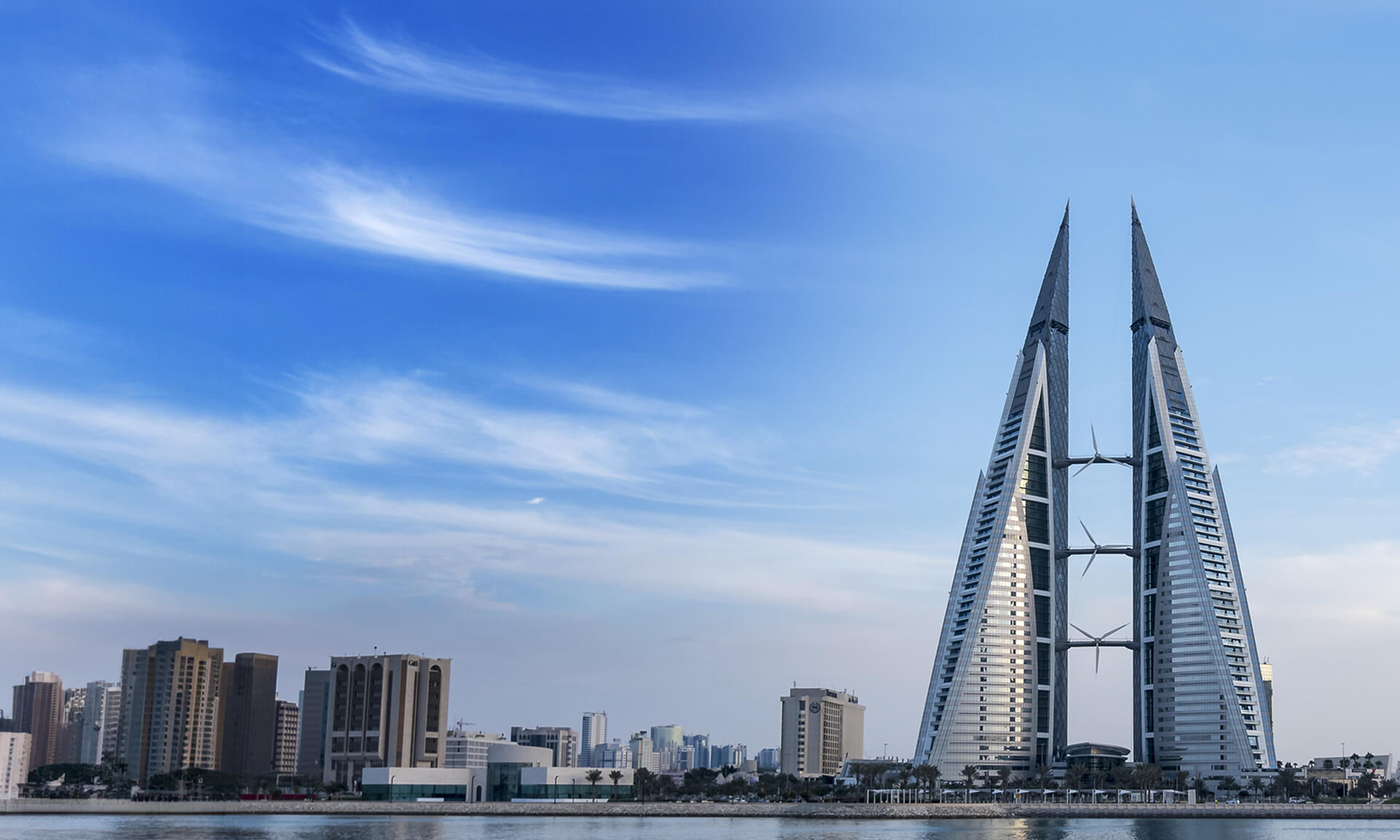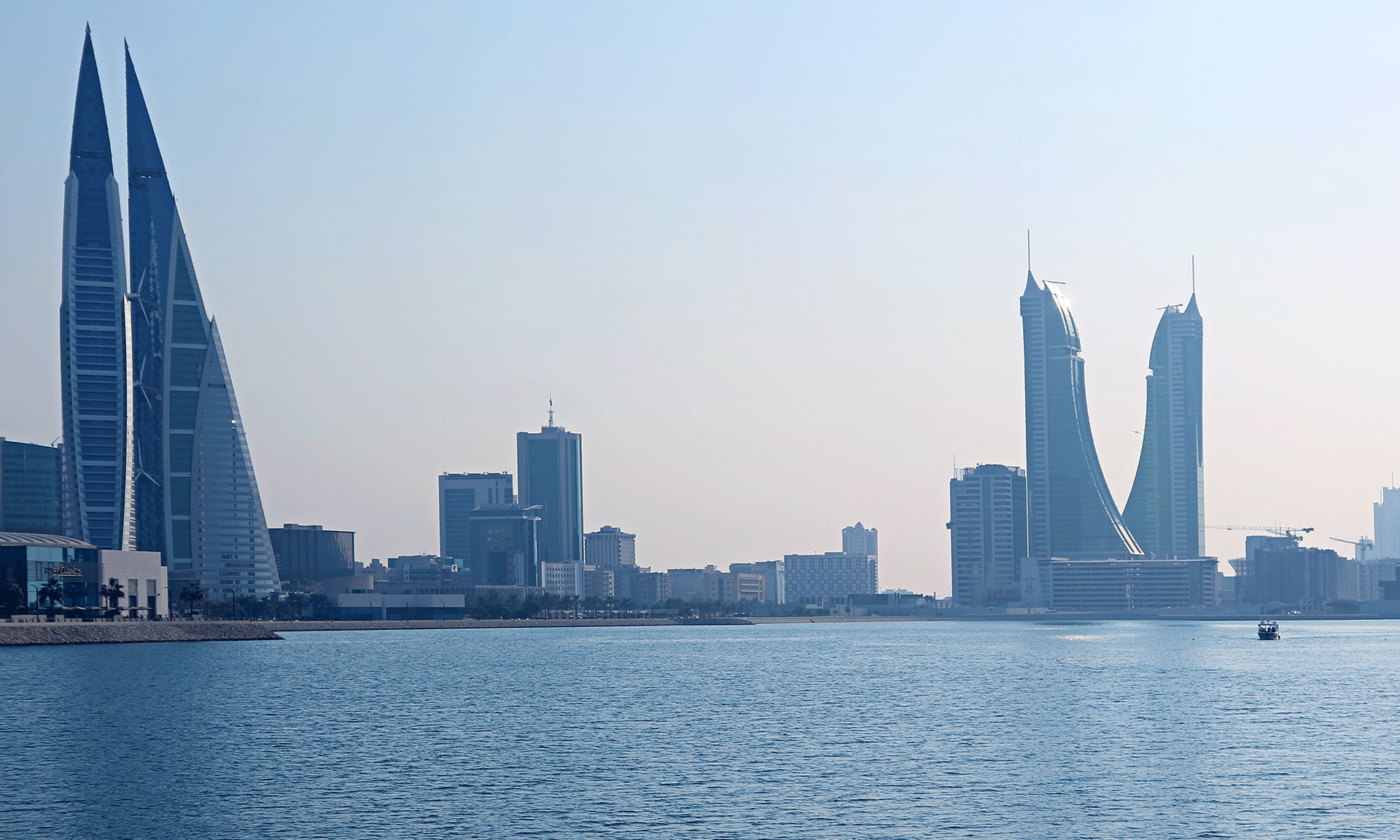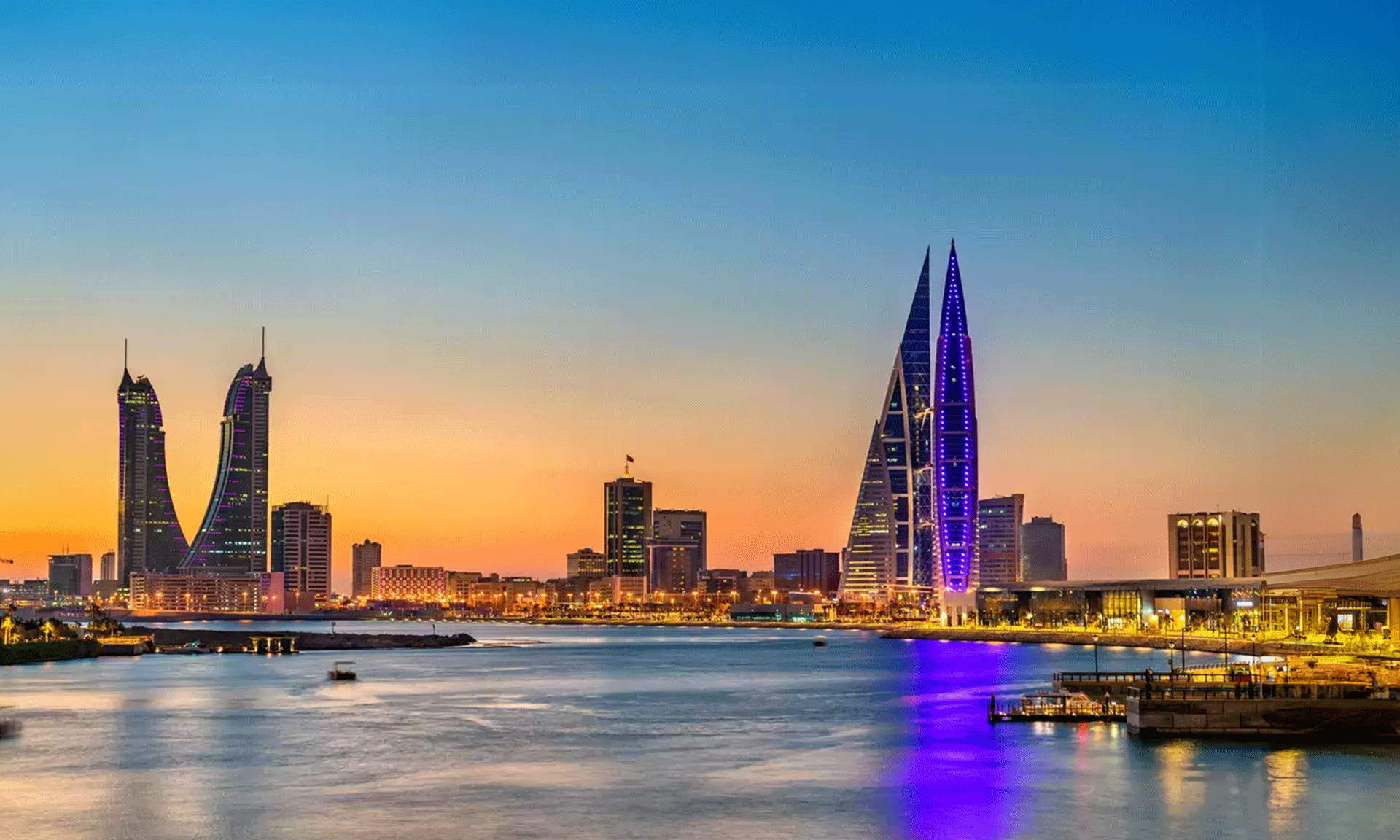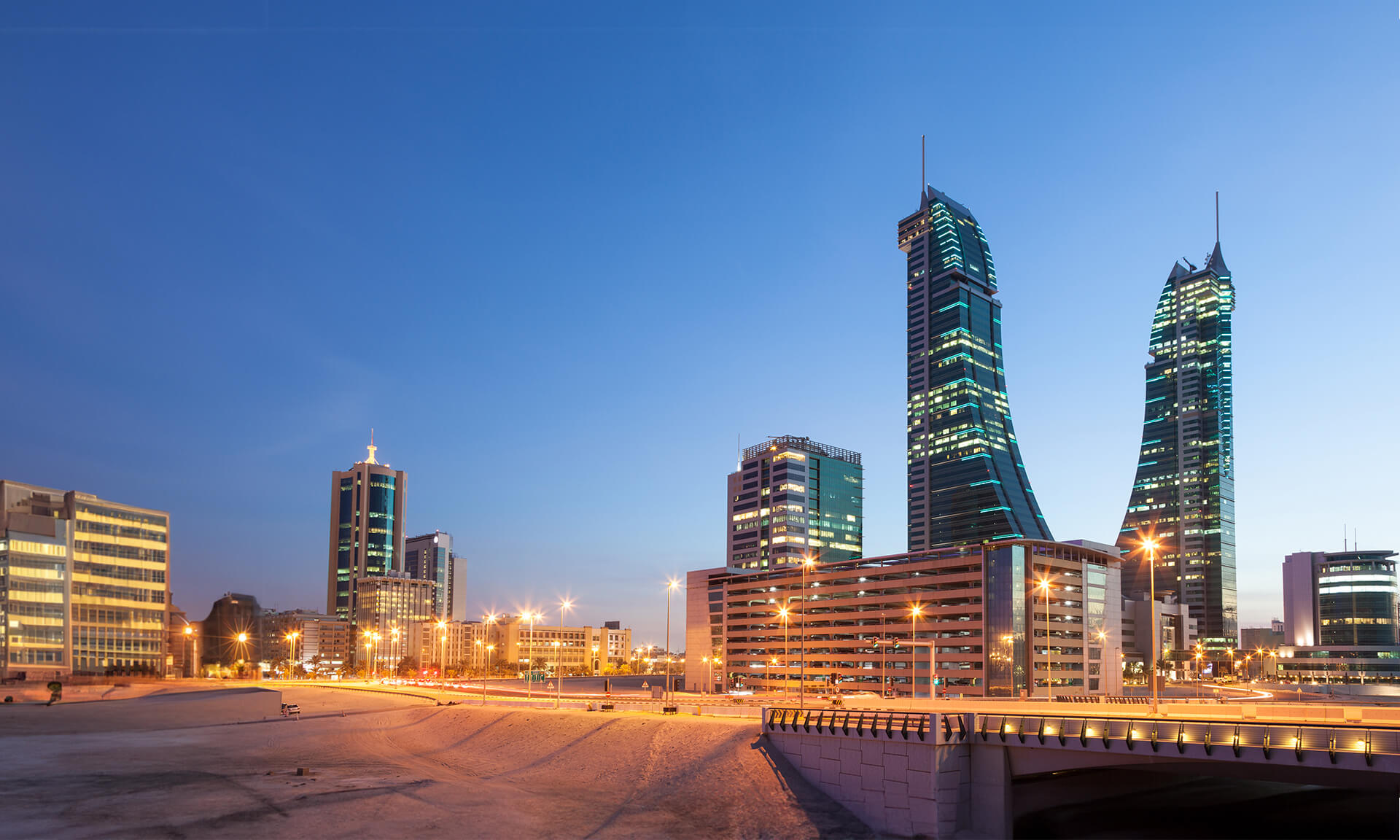Overview
According to the 2020 Index of Economic Freedom, Bahrain is the fourth freest economy in the Middle East and North Africa (MENA) region and is the 63rd freest economy in the world. Ranked 43rd among 190 economies in the ease of doing business, Bahrain has also been recognized as a High-Income country by the World Bank and the country’s high income can be attributed to oil and natural gas, aluminum export and tourism.
It was in 1970 when the Kingdom of Bahrain started growing into a Financial centre in the Arabian Peninsula and started attracting banks, insurance companies and investment firms from across the globe. Presently Bahrain has more than 114 banks including 23 retail and 69 overseas banks; 2 specialized banks and more than 400 financial institutions and rightfully claimed its position as one of the financial hubs among GCC countries. The central bank of Bahrain (CBB) regulates the banking and insurance sectors and foreign exchange offices.
The regulatory and accounting systems of the financial sector in Bahrain are transparent and comply with the world standard. For decades, the Government has supported the financial sector to reduce its reliance on oil and gas, and use it as the main driver of economic growth. Currently, the financial sector contributes to more than 17% of Bahrain’s GDP.
Besides the financial sector, Bahrain has diversified its economy in other non-oil sectors including manufacturing, real estate. aviation and communications. Alba, one of the largest Aluminum smelters in the world is a living testimony of the government’s commitment to economic diversification, industrialization and privatization.
Benefits of Company Formation in Bahrain
- 100% foreign ownership is allowed
- Free-holding of properties for foreigners
- No restrictions on repatriation of capital and profits and no exchange controls
- A reliable and efficient communication system
- No excessively strict Visa, Residence & Work permit requirement inhibiting foreign investors and expats moving freely in Bahrain
- Nil corporate Tax
- Abundant cheap energy
- Excellent support services from local authorities
- The long reputation of political stability, safety and security
- Nil personal income tax
- World-class infrastructure facilities
- Strategic location for cross border trade and investments
- Availability of Multiple Entry Visa with five years validity
Investment Climate in Bahrain
The investment climate is generally positive for company formation in Bahrain, a country with a liberal foreign investment outlook and continuously looking for foreign investors and businesses.
The Government of Bahrain, in its endeavour to attract foreign direct investments, offers a lot of incentives to foreign investors for doing business in Bahrain. Many attractive incentives are offered from various Bahrain based institutions namely the Bahrain Logistics Zone (BLZ), Bahrain Development Bank (BDB), Bahrain Economic Development Board (EDB), Bahrain International Investment Park (BIIP), and Tamkeen, the semi-autonomous government agency of Bahrain.
A few of the incentives offered are
- Assistance in company registration in Bahrain and starting business operations
- Financial Grant
- Duty-free access to other GCC countries for products manufactured in Bahrain
- Exemptions of import duties on plant and machinery
Promoting Investment and Trade: Free Trade Zones (FTZ) and Free Port
Entire Bahrain itself can be termed as a large Free-Zone as it is tax-exempt, doesn’t impose any restrictions on foreign ownership for most of the businesses and levies minimum customs duties.
Americans and GCC nationals are officially treated as Bahrainis and there is no restriction on 100% foreign ownership for any businesses and industries at all.
Bahrain has three main FTZs including Bahrain Logistics Zones (BLZ), Bahrain International Investment Park (BIIP) and Bahrain International Airport (BIP) and offers no annual rental, 50% lower utility cost and nil customs duty. Foreign-owned companies enjoy similar benefits for doing business in Bahrain and have access to the same investment opportunities as Bahraini companies.
Bahrain’s primary commercial seaport, Khalifa Bin Salman Port provides a free transit zone to facilitate duty-free import of equipment and machinery into the country.
Expatriates are permitted to own land in designated areas in Bahrain. Americans and non-GCC nationals can also own commercial and residential properties including properties used for tourism, banking and finance, health projects, and training centres.
To strengthen its position as a startup hub and to promote the investment ecosystem through new company formation in Bahrain, the Government introduced in 2018 the Bahrain FinTech Bay, the largest FinTech hub in the MENA region. Four new laws were also enacted on data protection, bankruptcy, competition and health insurance.
Bahrain also launched the USD100 million Al Waha venture capital fund for Bahraini investments and set up a USD100 million ‘Superfund’ as a growth initiative of start-ups.
Types of Companies in Bahrain
The Bahrain Commercial Companies Law (BCCL) enacted in 1971 and subsequently amended in 2001, defines and regulates the companies in Bahrain.
Following BCCL requirements, Bahrain companies are classified as under
1. Joint Stock Company (JSC)
This is one of the popular corporate vehicles in Bahrain and consists of two or more partners as shareholders. The partners are not liable for the company’s debt and obligations except the amount equaling the value of their shares.
These are two types including
Public Joint Stock Company
The minimum paid-up capital is BHD 1 million with one mandatory auditor.
Closed Joint Stock Company
The minimum paid-up capital is BHD 250,000 with each share not exceeding 100. One auditor is mandatory with 100% foreign ownership.
2. Limited Liability Company (LLC)
Also known as the With Limited Liability Company ( WLL) is a popular business structure for foreign investors and offers 100% foreign ownership for most businesses. There can be a maximum of 50 partners responsible for the debt and obligations of the company. One mandatory auditor with an office in Bahrain. Must have two directors and two partners as a minimum. The minimum share capital requirement is BHD 100,000
3. Single Person Company (SPC)
It is also a preferred company vehicle in Bahrain and is owned by one single member owning the entire business and unlimited liability for company debts and obligations. The minimum paid-up capital is BHD 50,000. Must have one Director and one partner with an office in Bahrain.
4. Limited Partnership Company (LPC)
This is also a major company type with a partnership between two members or two corporate bodies personally liable for the debts and obligations of the company. There should be two partners and a minimum of two Directors. Must have a local office in Bahrain. There are subcategories of partnership companies such as Simple Limited Partnership Company, Limited Partnership by share.
Decree 28 of 2020, has been issued on 28th September 2020 documenting various amendments to certain provisions of BCCL, Law 21of 2001 as a part of Bahrain’s ongoing commitment to developing its ‘compliance and regulatory frameworks ‘ at par with international best practice. The regulations have not been issued yet and likely to be enforced in the coming months.
Few highlights of Proposed amendments are
- A merger of SPC with WLL
- For WLL companies, no restriction on maximum shareholders
- Not-for-Profit companies, a new chapter added to BCCL & may be set up as the WLL
- For WLL, the minimum share capital requirement has been removed
- JSC can increase capital by converting debt to equity
- LPC not permitted to adopt a trading name
New Company Registration in Bahrain
The Bahrain Ministry of Industry Commerce and Tourism (MoICT) has launched an online commercial registration portal known as “Sijilat” to facilitate the commercial registration process.
Through Sijilat, businesses can obtain a license and other requisite approvals from the relevant authorities. The business registration process usually takes two to three weeks however can take longer if a business requires specialized approvals.
Normally most businesses outsource consultancy services for company registration in Bahrain to assist them through the commercial registration process.
Besides obtaining primary approval to register a company, most business owners must also obtain licenses from the following entities to operate their businesses:
The government also provides industrial lands at reduced rental rates for short periods as an incentive towards foreign investment through new company formation in Bahrain.
- MoICT
- The Municipality in which their business will be located
- The National Bureau for Revenue, Compulsory if the business revenue expected to exceed BD 37,500
- Ministry of Electricity and Water
- Labour Market Regulatory Authority
- General Organization for Social Insurance
Pre-incorporation Steps for company registration in Bahrain
- Selecting your business type and activities
- Deciding on the Share Capital
- Selection of Outsourced services for Company Registration in Bahrain
- Choosing a Company Name
- Determining the Shareholding Pattern
- Assigning Shareholders Designations
Process Steps for company registration in Bahrain
- Submitting Application to MoICT with details of applicant and company name, type of business, the total number of shareholders, total share capital, shareholding patterns, passport copies, visa status etc.
- Commercial Registration (CR) is issued without a license once the application is reviewed and approved by MoICT
- Obtaining the requisite business Licenses based on your business activity
- Articles of Association (AOA) and Memorandum of Association (MOA) are to be documented and submitted for approval. Once accepted, MOA & AOA are to be notarized and the copies to be submitted online
- Obtaining Bank Deposit Certificate from the bank and submitting online to MoICT
Documents for Company Registration in Bahrain
The main documents required for company registration in Bahrain are
- Duly filled company registration application form
- Capital Deposit Certificate
- Copies of Passport and Visa for company shareholders
- Power of Attorney for Outsourced Consultant
- Company Business Plan
- Commercial office address details
- Copies of Certificates of education and training of the applicant
- MOA and AOA
Tax Considerations in Bahrain
Bahraini companies are completely free of taxation except for companies in oil, gas, oil exploration, mining and refining sectors taxed at 46%.
Value-added tax (VAT) is imposed on goods and services at a uniform rate of 5%. Financial and insurance services and real estate business are VAT exempt. No VAT is levied on food items and education. Oil and gas exploration is also free of VAT.
Foreign Commercial and residential properties attract 10% Municipal Tax and 2% stamp duty is levied on sales and registration of real estate properties.
The import duty of 5% levied on imported goods. Alcohol and cigarettes attract 125% and 100% duty. All imported goods in Bahrain need customs clearance from the Director-General of Customs.
Bahrain is free of withholding tax, capital gains tax and payroll tax.
All companies are required to submit audited financial statements within 6 months of financial year-end and file quarterly tax returns. Non- compliance attracts 1% monthly fines.
Bahrain has a Double Taxation Avoidance Agreement (DTAA) with more than 40 countries motivating foreign entrepreneurs for company formation in Bahrain.
Takeaway
Like all other countries in the world, the recent Covid-19 pandemic and fall in global oil prices made it difficult for Bahrain to generate revenue and reduce government spending. In April 2020, Bahrain announced a BDH 4.3 billion (USD11.4 billion and equivalent to 29% of the country’s GDP), eight-point stimulus package to support the economic slowdown caused by the Covid-19 restrictions. Several subsidies have also been introduced to foreign-owned and local companies including utility bills coverage and waiver of tourism and industrial land fees to ease doing business in Bahrain.
Though Bahrain’s investor-friendly, liberal and tax-free business scenario is becoming increasingly attractive to foreign investors, setting up a new business establishment is very competitive, arduous and time-consuming. Outsourcing of a business service agency is hugely beneficial to facilitate and support the company registration in Bahrain and here comes IMC as your perfect business partner.
IMC has a long presence in GCC countries as a Business Process Services (BPS) provider and has acquired a total understanding and knowledge of the functioning of Bahraini government bodies.
A customer-centric affordable services company supported by a team of enthusiastic result-oriented professionals, IMC can cater to all your needs for doing business in Bahrain.
Pre-Incorporation Advice
IMC has the experience and expertise to advice customers on the suitable company type taking in to account the laws of the land and the unique customer’s needs. We have the experience having handled different industries and geographies across the world. We understand finance and the legal framework required to handle a company’s operations. We will advise on the percentage of shareholding allowed for foreigners, and the rights which go with that percentage and other such business matters. IMC has been operating in GCC for over 10 years.
Types Of Companies
- With Limited Liability Company (W.L.L.)
- Partnership Company
- Bahrain Shareholding Company (B.S.C.) – public
- Bahrain Shareholding Company (B.S.C.) – closed
- Simple Commandite Company
- Commandite by Shares
- Single Person Company
- Branch of a Foreign Company
- Holding Company
Documents Required For Company Formation
- Company Registration application form
- Draft Memorandum of Association
- Board of Directors resolution resolving to establish the company in Bahrain (for corporate partners)
- National ID card (Central Population Registry (CPR)) copies of the company’s representatives. If the partners are not present themselves to register the company, copies of the ID cards of their lawyers/other representatives must be provided
- CVs of individual partners
- Lease agreement as proof of the company’s commercial address
Free Zones in Bahrain
The island nation of Bahrain is diversifying its economy away from unsustainable hydrocarbons resources to sectors such as banking and finance, trade and industry, retail and tourism. Its physical link to Saudi Arabia – via the King Fahd Causeway, constructed in 1986 – has facilitated trade, tourism and retail.In 2013, Bahrain was ranked as the 12th most- free economy in the world by the US’ Heritage Foundation think tank. Bahrain is home to THREESpecial Economic Zones, all of which were ranked in the top 20 locations for inward investment, economic development and business expansion in FDI Magazine’s Global Free Zones of the Future 2012/13 report.
Advantages
- FZ companies do not require a Bahrain national shareholder for trading and commercial activities. While it is mandatory to rent a free zone office at a low rent, it is not necessary to hire staff
- Land rental rebates of 100% in government industrial areas for the first three years
- Electricity rebates of 50% for the first five years of operation
- No duties are imposed on goods imported and exported from the Free Zone
Bahrain International Airport (BIA)
Bahrain International airport sits in 19th place in the free zones of the future list, and is ranked fifth-best airport zone in the world. Offering cargo facilities, offices and retail space, the foreign trade zone has no customs duties. It is governed by Mumtalakat, the government vehicle for Bahrain’s non-oil and gas investments, established in June 2006 by royal decree.100% foreign ownership is allowed and it has a “bonded cargo terminal” allowing for delayed payment of duties until products leave the facility.
Bahrain Logistics Zone (BLZ)
The Bahrain Logistics Zone was established in 2008 next to Khalifa bin Salman port, the island’s main harbour. Placed 16th in the FDI Magazine ranking, the port zone offers land plots of 3,000 square metres and more for lease. The 100- hectare zone focuses on third-party logistics, storage and distribution (for export and re- export), as well as other logistics services and activities. In the first quarter of 2013, container throughput stood at 95,828 20-foot equivalent units, with an average processing time of 32 minutes.The BLZ is ideal for regarding-exporting and logistics companies benefiting from zero-tax and duty exemptions. It is also a boutique center for manufacturers in component assembly, packaging, testing, and repair companies.
Bahrain International Investment Park (BIIP)
BIIP offers100 per cent foreign ownership of companies, duty-free access to GCC markets, exemption from import duties on both raw materials and equipment and 100 per cent repatriation of capital. Located 5 kilometers from Bahrain International airport, BIIP consists of 2.5 million sq m of leasable land, costing $1.33 a sq m a year to rent. GCC free zones are considered as being outside the country, so goods are taxed at 5 per cent when exported to Bahrain. BIIP is not treated as a free zone, so is not subject to the 5 per cent tax when shipping goods to Bahrain.The Bahrain International Investment Park is ideal for large manufacturing operations, including food process, medical technology, electronics, and materials. Export led services including insurance claims, administration, and software and information systems.
Access to Bahrain double tax treatiesYes
| Type | Limited Liability Company (WLL) |
| Under Bahrain law, foreigners can own | 100% |
| Share Capital | US$ 133,000 |
| Director | Minimum Two |
| Memorandum & Articles of Association | Yes |
| Shareholders | Minimum two |
| Can the entity hire expatriate staff in Bahrain | Yes |
| Bahrain Resident Secretary Required | Yes |
| Statutory Audit Required | Yes |
| How long to open Corporate Bank Account | One Day |
| Annual Tax | Must be filed |
| Timeframe for Incorporation | 1 month |






























 IMC Group
IMC Group